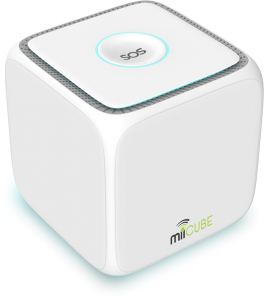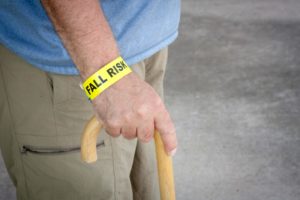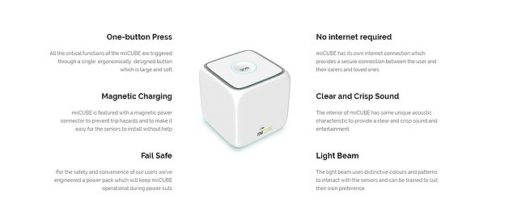A new device intended to help elderly people remain safe in their homes is in its final stages of development.

Credit: miicare.co.uk
Being touted as an “Amazon Echo for the elderly,” the miiCube is a small white cube that uses artificial intelligence (AI) to track people’s movements. It’s designed to understand their daily routines in order to detect abnormalities should those routines change.
Changes in routines like getting out of bed later than normal or heading to the bathroom at unusual hours could trigger an alert to both relevant authorities and the person’s family. (The AI has been fine-tuned so that it doesn’t trigger unnecessary alerts.)
Kelvin Summoogum created the firm miiCARE to design the product after his own grandmother fell and broke her hip while home alone. She was stuck on the floor for 12 hours before a neighbor saw and brought her to a hospital.
“It was a horrible experience,” said Summoogum, “and one I don’t want anyone else to have to go through.”
The miiCUBE can be used to check on elderly people throughout any given day, not just when something life-threatening happens.

Credit: phys.org
“This keeps people active during their retirement and prevents them picking up bad habits, such as staying in bed later into the day, but it also helps keep the frail safe,” says Summoogum.
The miiCUBE is still undergoing fine tuning, and has been backed by the Kent County Council, Royal Mail, Santander and other supporting partners. Its development has been backed by a £260,000 pledge through crowdfunding and 250 investors. Mr. Summoogum’s team is expecting a May launch date.
There are currently 33 miiCUBEs being trialed in homes across Kent County in England.
“With this project we’ve been able to spend two years really getting to know how elderly people live and develop a device that can get to know its users incredibly quickly,” says Mr. Summoogum.
How It Works
miiCUBEs are essentially smart devices tailored specifically for elderly people.
The miiCUBE connects to tiny sensors strategically placed around an elderly person’s home. These sensors monitor activities and the overall environment, establishing the person’s general behaviors. A notification is sent to relevant contacts such as a caregiver, or family member should the device detect anything out of the ordinary.
However, the cubes are much more than just a wireless “panic” buttons. The little device can log when and for how long a caregiver is in the home. They can remind a person to take medications, can provide predictive analysis, and are connected to a 24/7 call center. They also act as a source of entertainment, providing news, music, radio and social media for their users.

Credit: dailymail.co.uk
And it’s all relatively simple to use, which is important for older populations.
“Often you’ll hear elderly people trying to use Alexa — Amazon Echo’s voice assistant — and getting frustrated and eventually giving up,” says Summoogum, “because she keeps asking users who may have slow or interrupted speech to repeat themselves…We’ve spent time learning about these issues; what future users keep telling us is we need to make technology adapt to them and not the other way round.”
The miiCUBE is just the latest in new technologies available for aging populations. miiCARE is currently in talks with NHS England about getting miiCUBE to users throughout the U.K. Hopefully these devices will be available worldwide in the next year as well.

 miiCUBE Uses AI To Monitor Elderly People’s Routines
miiCUBE Uses AI To Monitor Elderly People’s Routines




 Composting Bodies Is Now Legal in a Dozen States
Composting Bodies Is Now Legal in a Dozen States














